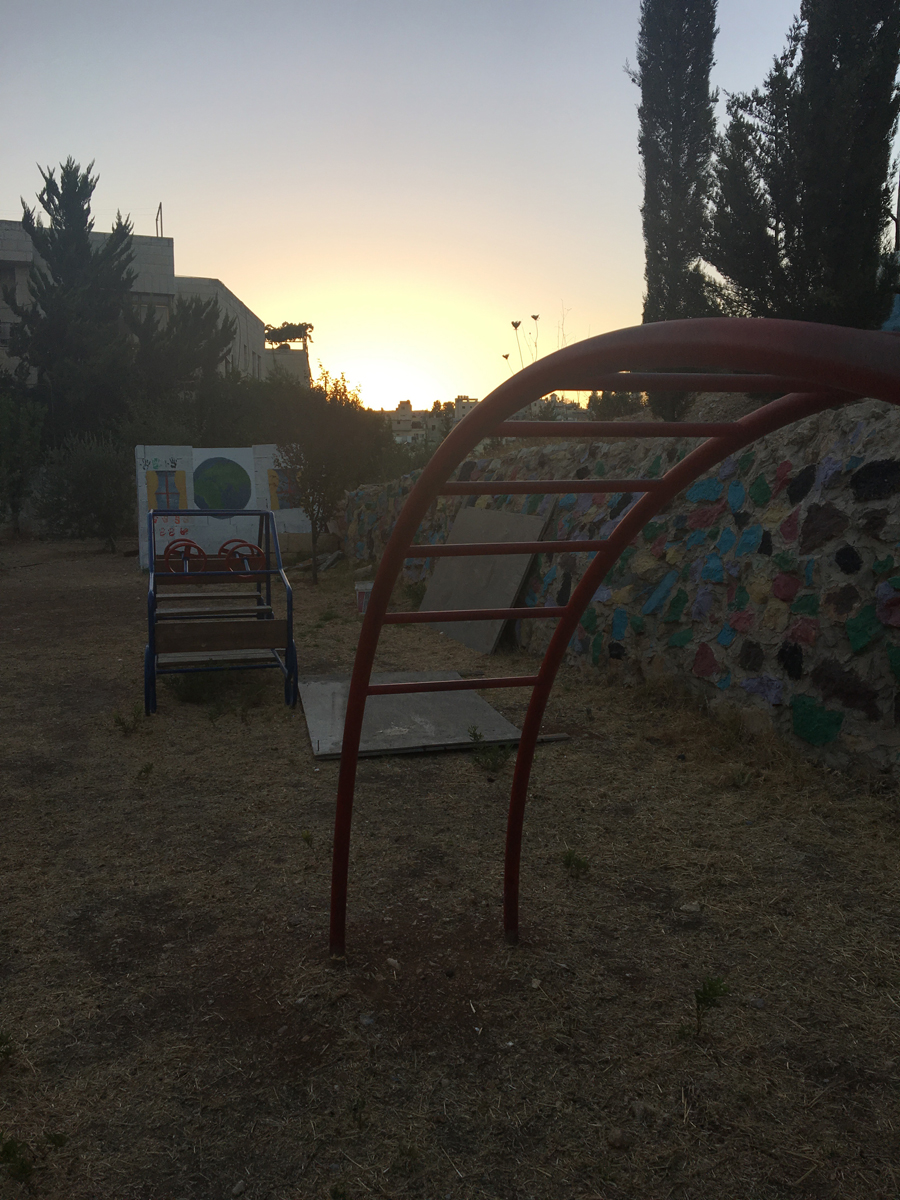Normalization of Suffering
“Normal” is a subjective word; one person’s normal may look different than another’s. In Palestine, “normal” looks a lot different than it does in the States. Normal often means suffering; to suffer is normal.
I was inspired to write this post after a discussion I had with my friends (internationals and Palestinians) a few nights ago. My friends and I talked about something we called the “normalization of suffering” in Palestine. This refers to the day-to-day relations on the ground here that cause suffering, from restrictions to movement and water to poverty and unemployment, and the way these things have become the status quo in Palestine.
It is obviously wrong that Palestinians have fewer rights and opportunities than Israelis. But we contemplated whether or not normalizing this suffering has a bright side to it. We agreed that people must forge some kind of life; being used to human rights violations and living in spite of them is a mechanism for coping and thriving in the face of suffering. However, normalization breeds complacency. If people believe that the current state of affairs are “just the way things are,” they will never have the capacity to imagine that life is any different or that they deserve more than this. Because suffering is ubiquitous here, it becomes the norm, and this normalization maintains the status quo.
Restrictions on travel are one example of the normalization of suffering.
After years of appeals to the Israeli government, one of my friends just received his permit to travel outside of the country. He is 23 years old, and before now, he was barred from ever leaving Israel and the West Bank (not because of something he did, but because he has a Palestinian ID*). Between the six members of his immediate family, they have four different classifications of permits, each with varying degrees of restriction of movement within and outside of Israel. Due to this, all of the members of his family cannot go on a vacation outside of Israel together.
I asked him where he planned to go now that he can leave. He immediately launched into a description of Japan, the major cities there, the food, the culture, and so on. From the way his face lit up as he spoke, I could tell he has been dreaming about going to Japan for years now.
Another one of my friends has complete restriction on exiting the West Bank. A group of us are planning on going to the beach again in Yaffa, Tel Aviv in a week, and I asked him if he wanted to come. He told me he couldn’t and proceeded to explain his permit situation. His explanation was short; with an accepting, wide smile, he told me that it is “okay,” that he will “keep trying” and applying for a travel permit.
To give these stories more perspective, Israel is only a few square miles larger than New Jersey. The West Bank is even smaller, maybe the size of Nashville and its surrounding neighborhoods combined (Brentwood, Bellevue, etc).** I challenge you all to think about what it would be like if you had never left an area the size of New Jersey for your entire life. Now, shrink that area and think about never leaving Nashville for your entire life. Imagine that you wanted to leave, but you were not allowed to leave. This is suffering, and this suffering is normal for many Palestinians.
I will never forget my friend’s smile and the way my other friend talked about Japan. Being kept from traveling is normal here. Like many other Palestinians, my friends have normalized their suffering as a method for coping with it. There is not much else my friends can do about this suffering. But what they can do, what I can do, what we all can do, is talk about it. To never have seen the ocean or to never get to visit a country you’ve longed to see, because of your nationality and a conflict in your country, is a form of suffering that should not be hidden by smiles or complacency. This suffering needs acknowledgement, it needs to be shared with the world. Suffering is not only physical pain or poverty, it is a lack of opportunity and a denial of basic human rights to travel. When we can all recognize this as suffering, point it out and discuss it, change can take place.
Taking all of this into consideration, I’ve settled on the conclusion that the normalization of suffering, while an effective coping mechanism, is ultimately deleterious.
*Note: Citizenship is tricky here, many people born in the West Bank or from Palestinian descendance have Palestinian citizenship without Israeli citizenship, even though “Palestine”/the West Bank are not countries. Check out this NY Times article for more on this topic: http://www.nytimes.com/2012/05/24/opinion/not-all-israeli-citizens-are-equal.html?_r=0. The UN has given Palestine “non-member, observer state” status, however. See this article: http://www.aljazeera.com/programmes/insidestory/2013/01/2013186722389860.html
**Check out this link: http://www.ifitweremyhome.com/compare/US/PS.
More from this Author
Ready to Travel?
Are you curious and ready to dream big? Do you desire to challenge yourself and make a meaningful difference? Become a Lumos Traveler - let’s get you started!


